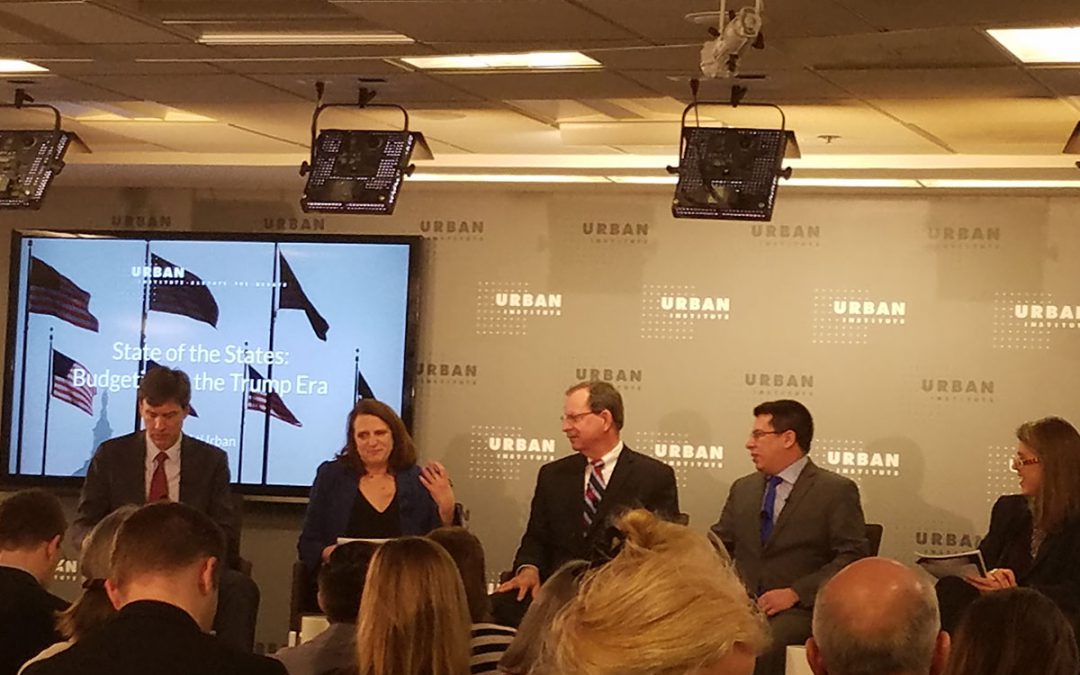WASHINGTON – Seven years into an economic recovery, most states still aren’t spending what they were when inflation was factored into account.
“Thirty-two states are still not spending at the level they were before the Great Recession, adjusted for inflation,” said John Hicks, executive director of the National Association of State Budget Officers. “When you adjust for population, 39 states are still spending at a level lower than the Great Recession. For a period of recovery, this length of recovery, that’s a bit of a surprise.”
The recession ended in June 2009, according to the National Bureau of Economic Research.
Hicks spoke Thursday at an event at the Urban Institute on the impact the Trump administration will have on state budgets.
President Donald Trump’s executive order to repeal the Affordable Care Act could save money for states that opt out but increase costs for those who want to continue offering health insurance because there may not be federal funds available, tax experts said.
“If we basically repeal without replacement of ACA, that means if states do nothing, they’ll actually save a little bit of money, but millions of people will be uninsured,” said Kim Rueben, a senior fellow at the Urban Institute. “If they decided that it’s unacceptable to have that many more people be uninsured, their costs are going to go up.”
Hicks said state budgets may be in for some difficulties.
“My theme is cloudy with a chance of storms,” he said.
Nick Johnson, senior vice president for state fiscal policy at the Center on Budget and Policy Priorities, said efforts to tackle poverty may suffer.
“The proposals that we have seen, what we expect to see from this administration and this Congress…these proposals would really cripple this partnership,” he said.


